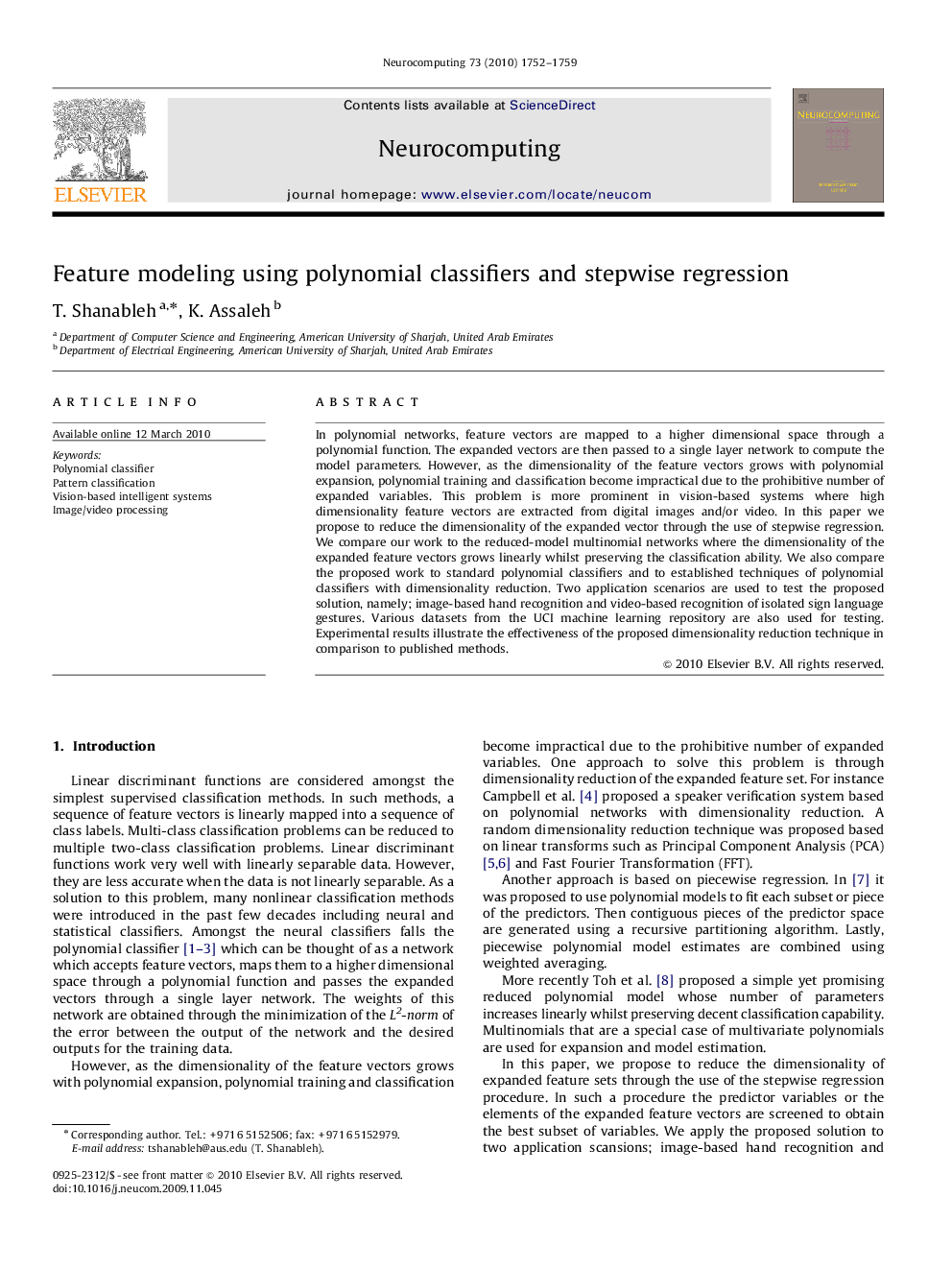| Article ID | Journal | Published Year | Pages | File Type |
|---|---|---|---|---|
| 412793 | Neurocomputing | 2010 | 8 Pages |
In polynomial networks, feature vectors are mapped to a higher dimensional space through a polynomial function. The expanded vectors are then passed to a single layer network to compute the model parameters. However, as the dimensionality of the feature vectors grows with polynomial expansion, polynomial training and classification become impractical due to the prohibitive number of expanded variables. This problem is more prominent in vision-based systems where high dimensionality feature vectors are extracted from digital images and/or video. In this paper we propose to reduce the dimensionality of the expanded vector through the use of stepwise regression. We compare our work to the reduced-model multinomial networks where the dimensionality of the expanded feature vectors grows linearly whilst preserving the classification ability. We also compare the proposed work to standard polynomial classifiers and to established techniques of polynomial classifiers with dimensionality reduction. Two application scenarios are used to test the proposed solution, namely; image-based hand recognition and video-based recognition of isolated sign language gestures. Various datasets from the UCI machine learning repository are also used for testing. Experimental results illustrate the effectiveness of the proposed dimensionality reduction technique in comparison to published methods.
